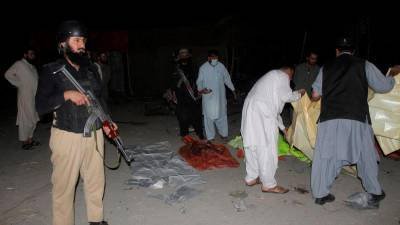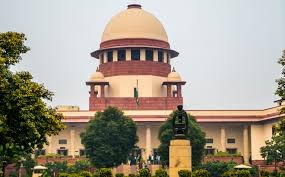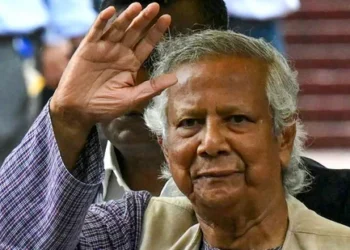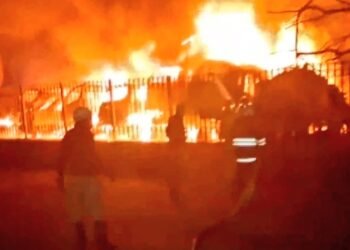Explosions ripped through Turbat in southwestern Pakistan, leaving 11 dead and many wounded. Security forces cordoned the area as probe begins
BY PC Bureau
September 19: A fresh wave of violence has rocked Pakistan’s restive Balochistan province, where at least 11 people were killed in two separate blasts within 24 hours, officials confirmed on Friday. The incidents highlight the fragile security situation in a region long troubled by separatist insurgency and cross-border militancy.
The first attack occurred on Thursday in Dasht, near the border with Iran, when a suicide bomber driving an explosives-laden vehicle targeted a convoy of paramilitary forces. The powerful blast killed five people, including three Frontier Corps personnel, and left several others injured. Security officials cordoned off the area and launched a search operation soon after the explosion.
READ: From ‘Ya Ali’ to Folk Anthems, Voice of the Northeast Zubeen Garg Meets Tragic End
Hours later, a second explosion ripped through a group of labourers near a crossing close to the Afghanistan border, killing six workers on the spot. “They were local labourers engaged in road construction activities when the device went off,” said Imtiaz Ali Baloch, a senior government official. Rescue workers rushed to the scene, moving the bodies to a nearby hospital, while police teams began collecting evidence.
Responsibility and Motives
The Baloch Liberation Army (BLA), an outlawed separatist outfit, claimed responsibility for the convoy bombing in Dasht. The BLA has carried out several deadly attacks in recent years, often targeting security personnel and infrastructure linked to the China–Pakistan Economic Corridor (CPEC). The second blast, which killed the labourers, has not yet been claimed by any group.
Security experts say the dual attacks demonstrate a strategy to undermine both the state and civilian morale. “These incidents show militants want to stretch security forces thin, while also instilling fear among ordinary citizens,” said a Quetta-based analyst.
Long-Running Insurgency
Balochistan, Pakistan’s largest province by area but least populated, has been gripped by insurgency for decades. Separatist groups demand greater autonomy and accuse Islamabad of exploiting the region’s rich natural gas, coal, and mineral resources while offering little in return in terms of development.
The province has also become a focal point of CPEC, a multibillion-dollar flagship project under China’s Belt and Road Initiative. Militant groups see the project as a tool of exploitation, and attacks on Chinese nationals and projects in Balochistan have been frequent.
Government Response
Authorities in Quetta condemned the latest violence. “Such cowardly acts cannot deter us. Security operations will be intensified to root out terrorists,” a provincial government spokesperson said. The spokesperson added that additional forces had been deployed to border areas to prevent further infiltration by militant groups.
Pakistan’s security agencies have ramped up counter-insurgency operations in Balochistan in recent months. However, human rights groups allege that these operations sometimes involve enforced disappearances and collective punishments, further deepening resentment among local communities.
Blasts kill at least 11 in southwestern Pakistan #FMTNews #FMTWorld https://t.co/JyCdeZ13Nw
— Free Malaysia Today (@fmtoday) September 19, 2025
The violence comes at a time of heightened regional uncertainty. Relations between Pakistan and Afghanistan remain tense over cross-border militancy, while Pakistan’s western border with Iran has also witnessed occasional flare-ups. Analysts warn that instability in Balochistan could further complicate Islamabad’s relations with its neighbours and jeopardize foreign investment.
For ordinary residents of the province, however, the immediate concern is safety. “We just want to live without fear,” said a shopkeeper in Quetta. “Every few days there is a blast, and people die. How long will this continue?”













